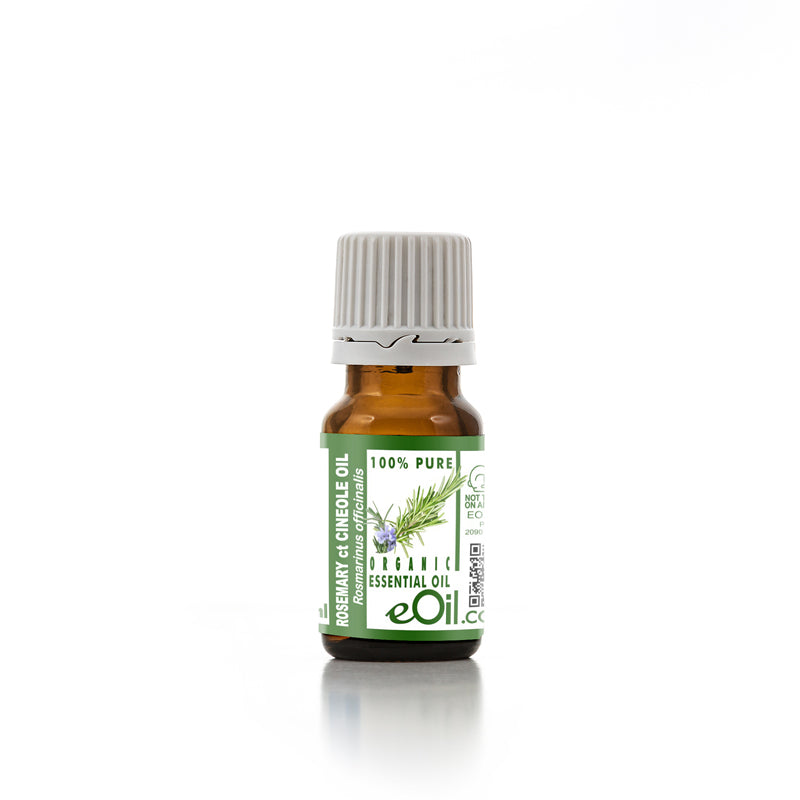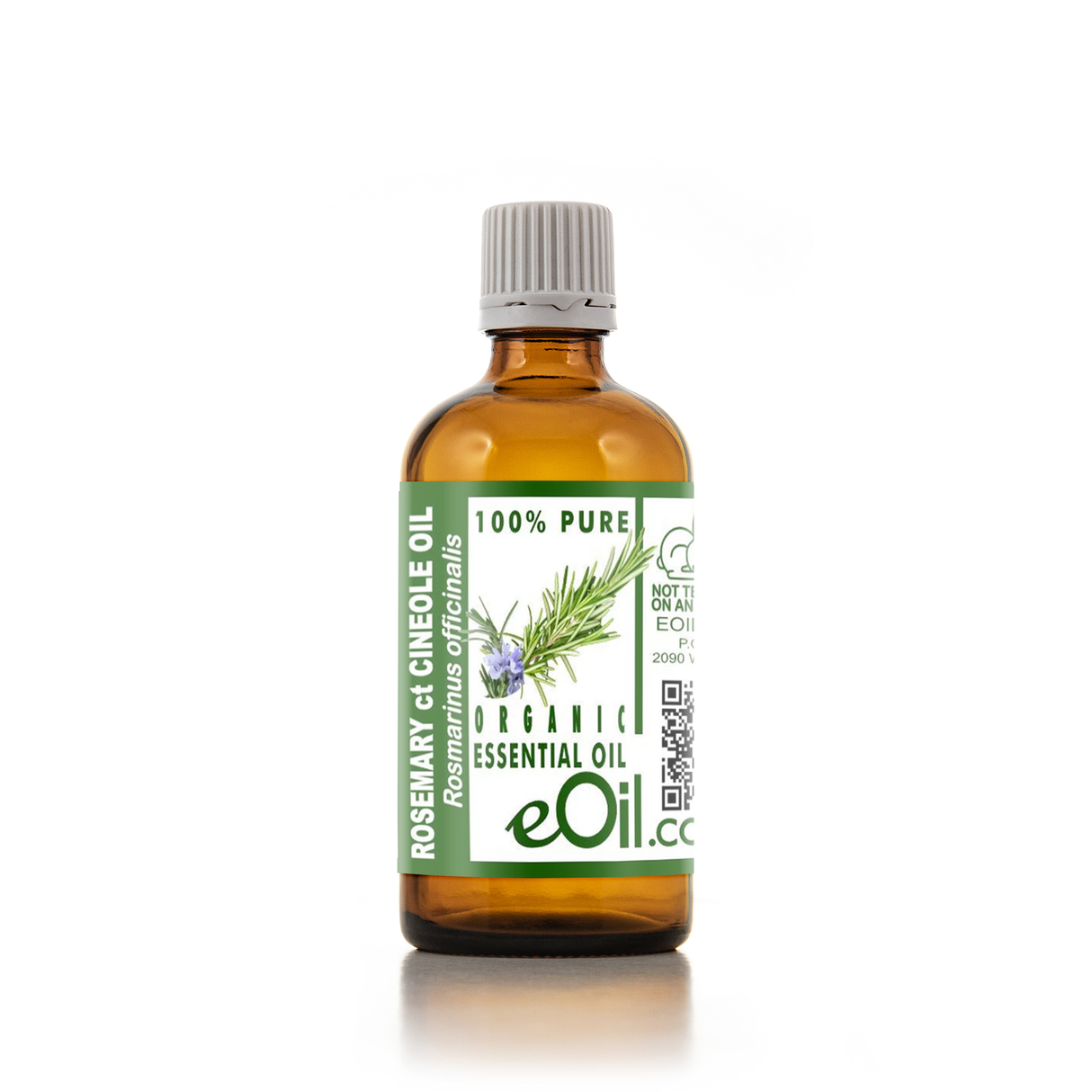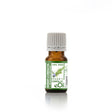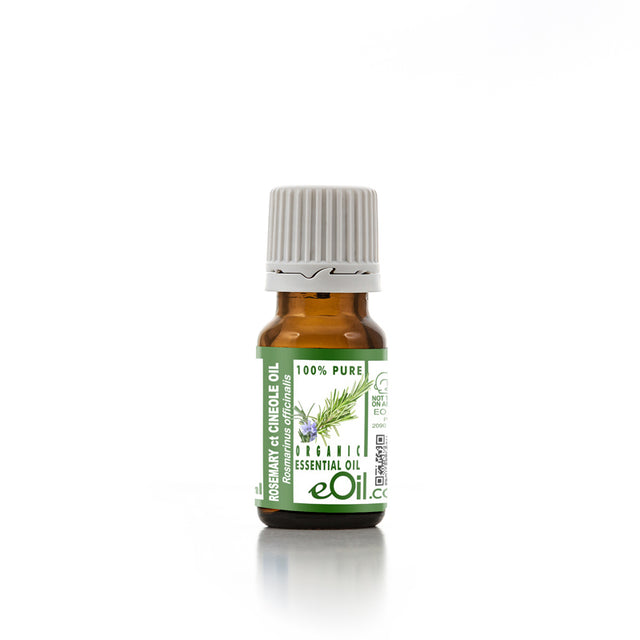Rosemary Cineole Essential Oil Organic
Rosemary Cineole Essential Oil Organic - 10 ml is backordered and will ship as soon as it is back in stock.
Description
Description
Information regarding differences between Rosemary verbenone vs Rosemary cineole
Rosemary Officinalis Cineole organic essential oil is steam-distilled from the finest rosemary (Salvia rosmarinus/Rosmarinus officinalis) leaves and flowering tops, rich in 1,8-cineole (eucalyptol).
Its crisp, fresh, piney-eucalyptus aroma is invigorating and clarity-boosting, well-loved for respiratory, focus, and cleansing uses—all while supporting clear skin and healthy hair.
IDENTIFICATION
INCI Name : Rosemary officinalis (Rosemary) leaf oil, chemotype Cineole.
CAS Number :8000-25-7
EXTRACTION METHOD: Steam distilled essential oil
PARTS USED: Leaves and flowering tops
ORIGIN: Spain / Morocco
COMMON NAMES: Rosemary AKA Salvia Rosmarinus
APPEARANCE: Colourless to Pale yellow liquid.
ODOUR: Intense, fresh, Pine/eucalyptus aroma, herbal. Middle note.
QUALITY: 100 % pure, natural, and organic, whole essential oil. Soluble in Carrier (Fixed) oils and high proof alcohols. Insoluble in water.
MAIN MOLECULAR COMPOSITION: Alpha-pinene; 1,8 cineole (Eucalyptol); Camphor; Beta-Pinene.
STORAGE CONDITION: Keep in a cool, dry place, away from sunlight. Store tightly closed, out of reach from children and pets.
TRADITIONALLY USED FOR
In aromatherapy, Rosemary Officinalis is a highly valued essential oil due to its unique properties and versatile applications. Here are some common uses of Rosemary Officinalis in aromatherapy:
Mental clarity and focus: Rosemary Officinalis is known for its stimulating properties, which can help improve mental clarity, focus, and concentration. Diffusing the oil or inhaling it directly can help alleviate mental fatigue and promote a clear, alert mind.
Respiratory support: With its expectorant and antimicrobial properties, Rosemary Officinalis can be used to support respiratory health. It can help clear congestion, soothe coughs, and ease breathing when diffused or inhaled.
Stress relief and relaxation: The uplifting and invigorating scent of Rosemary Officinalis can help reduce stress, anxiety, and promote relaxation. Use it in a diffuser or add a few drops to a warm bath for a soothing experience.
Pain relief: Rosemary Officinalis has analgesic and anti-inflammatory properties that can help alleviate muscle and joint pain. Mix it with a carrier oil and massage it into the affected areas for relief.
Hair growth and scalp health: Adding a few drops of Rosemary Officinalis to your shampoo or conditioner can help stimulate hair growth and improve scalp health. Its antimicrobial properties can also help fight dandruff and other scalp issues.
Immune system support: Rosemary Officinalis has antioxidant and immune-boosting properties, which can help support the immune system when used regularly. Diffuse it throughout your home or workspace to create a healthy and protective environment.
Skincare: Due to its antimicrobial and anti-inflammatory properties, Rosemary Officinalis can be a beneficial addition to your skincare routine. Dilute it with a carrier oil and apply it to the skin to help improve acne, eczema, or other skin irritations.
Remember to always dilute essential oils with a carrier oil or use them in a diffuser, as they can be highly concentrated and may cause irritation if applied undiluted to the skin.
ROSEMARY CINEOLE VS VERBENONE
Rosemary (Rosmarinus officinalis AKA Salvia Rosmarinus) is a versatile herb with various chemotypes that can have different chemical compositions and therapeutic properties. Two of these chemotypes are Rosemary Cineole and Rosemary Verbenone. Both have unique properties and uses in aromatherapy, perfumery, and cosmetic skincare.
Rosemary Cineole:
Rosemary Cineole, also known as Rosemary CT (chemotype) Cineole, has a high content of the constituent 1,8-cineole (eucalyptol), which is known for its expectorant and decongestant properties.
Aromatherapy:
In aromatherapy, Rosemary Cineole is used for respiratory issues like colds, coughs, bronchitis, and sinus congestion. It also helps improve mental clarity, focus, and memory, making it popular for use in study and work environments.
Perfumery:
Rosemary Cineole has a fresh, herbaceous, and camphoraceous scent, which makes it a useful ingredient in perfumery for creating invigorating and stimulating fragrances.
Cosmetic Skincare: In cosmetic skincare, Rosemary Cineole can be found in products formulated to help with acne, oily skin, and hair growth stimulation. Its antioxidant properties also make it beneficial for anti-aging formulations.
Rosemary Verbenone:
Rosemary Verbenone, or Rosemary CT Verbenone, is characterized by a high content of the constituent verbenone, which gives it unique therapeutic properties.
Aromatherapy:
In aromatherapy, Rosemary Verbenone is known for its gentle and restorative properties, making it more suitable for sensitive skin and delicate respiratory conditions. It is used for skin healing, reducing inflammation, and promoting overall skin health. Additionally, it can help with stress relief, emotional balance, and nervous system support.
Perfumery:
Rosemary Verbenone has a softer, more floral, and herbaceous scent compared to Rosemary Cineole, making it a suitable ingredient for creating soothing and calming fragrances.
Cosmetic Skincare:
In cosmetic skincare, Rosemary Verbenone is highly regarded for its regenerative and healing properties, making it a popular choice for products targeting skin repair, scars, and stretch marks. It is also useful in formulations for sensitive, dry, or mature skin, and can help to balance sebum production.
While both chemotypes of rosemary have their unique properties and uses, it is essential to consider individual needs and preferences when choosing which one to use.
It is also crucial to use essential oils safely and consult a qualified aromatherapist or healthcare practitioner for guidance on appropriate use.
RECIPES | SYNERGIES USING ROSEMARY
Energizing Diffuser Blend Click here to go to the page
Hair Growth Scalp Massage Oil Go to the page
Muscle Relief Massage Oil Go to the page
Mental Clarity Roll-On Go to the page
Please click on the link to access some synergies | recipes where you would use the Rosemary verbenone essential oil
De-stress Well-being recipe synergy essential oils
Hair Growth Treatment Oil
Massage onto scalp and hair and leave overnight
Neem (20ml) + Jojoba (50ml) + Black Seed (30ml) + Rosemary (20 drops)
Study Blend
Use in a diffuser; or Apply topically on pulse points after diluting in a base oil
Rosemary (10 drops) + Peppermint (2-4 drops) + Lemon (3-6 drops) + Sweet Orange (2-4 drops)
INSTRUCTIONS OF USE
Fantastic for this use +++
Acceptable (suitable) for this use ++
Tolerable (not great for this use)+
Don't use for this purpose --
Massages & body care
- Body massage use 1 to 6 drops essential oil for 10 ml carrier oil (0.5 to 2 % concentration) +++
- Face care use 1 to 3 drops essential oil for 10 ml carrier or base (0.5 to 1 % concentration) ++
- Body care use 2 to 6 drops essential oil for 10 ml carrier or base (1 to 2 % concentration) +++
Diffusion
Others
For more detailed information, please go check this LINK TO Instructions of use essential oils page
DO NOT USE UNDILUTED and seek medical and specialist advise when in doubt
SEE OUR PAGE ON PRECAUTION - HOW TO USE ESSENTIAL OILS SAFELY
REPORTED BENEFITS & PROPERTIES
Reported benefits & properties:
- Anticatarrhal, mucolytic
- Regenerating, scar healing
- Detoxifying
BLEND WELL WITH
- Most essential oils
- But especially with: Geranium, Amyris, Lavender, Cypress, Ravintsara, Peppermint, Eucalyptus, Tea tree or niaouli, Thyme, bergamot, neroli, patchouli.
CAUTION
For adults and Teen-agers
Cortison-like
Can be irritating to the skin
Do not use during the first 3 months of pregnancy / breastfeeding
Keep out of reach of children and pets.
As a general rule, always perform a skin patch test before using your essential oils for the first time.
DO NOT USE UNDILUTED and seek medical and specialist advise when in doubt




